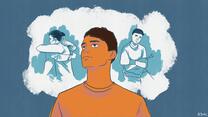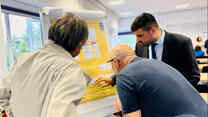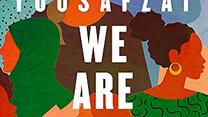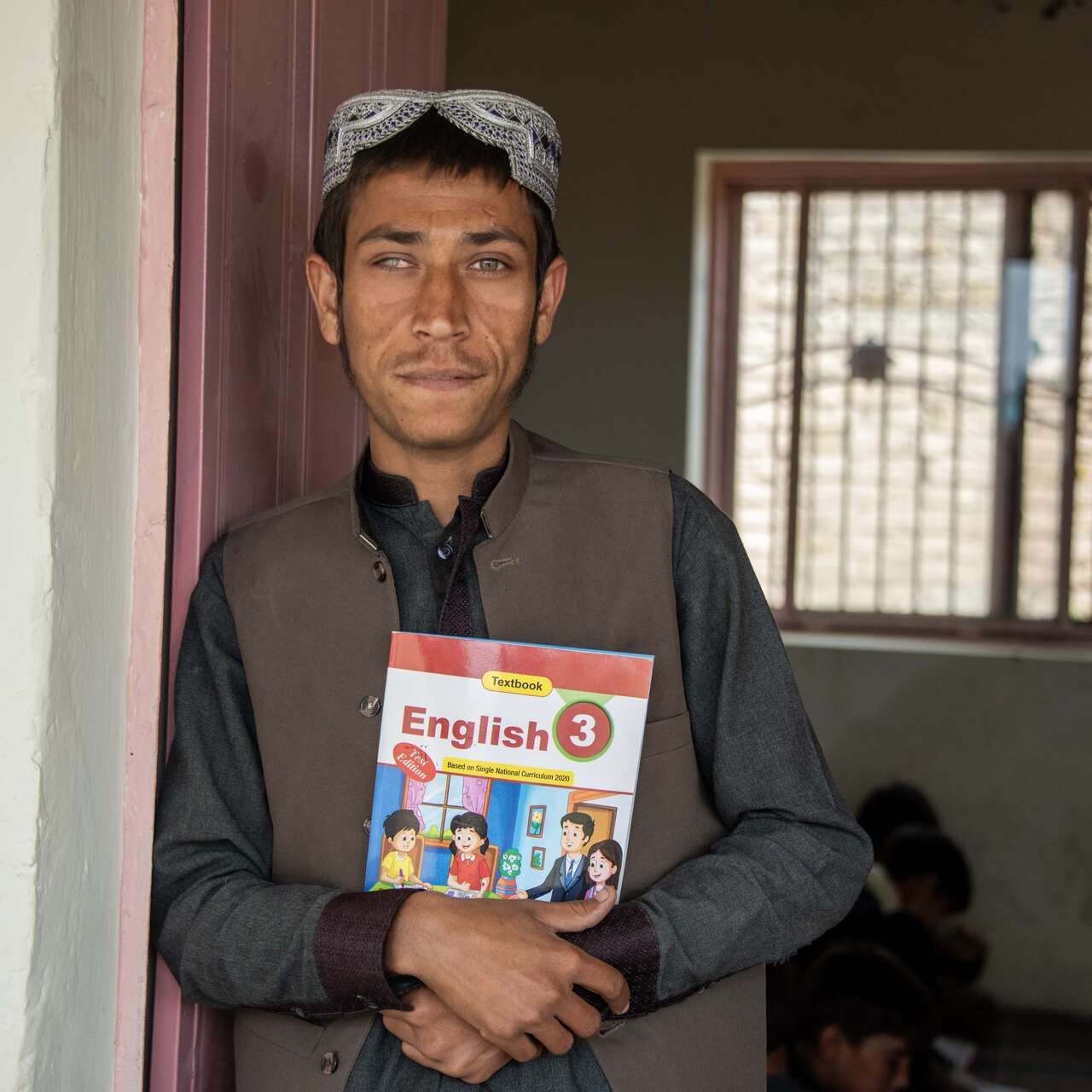
Naiko is a 16 year old boy who, along with countless other Afghan refugees, lives on the Afghanistan-Pakistan border in Chaman, Balochistan. Socio-economic problems such as poverty, a high unemployment rate, and inaccessibility to essential services such as education has resulted in cross-border smuggling becoming a common source of income for many refugees who have no other viable opportunities to help support their families.
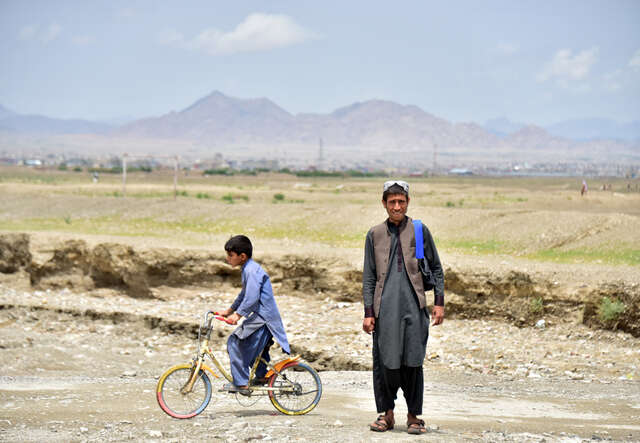
Naiko shares his personal story with us.
“We are a family of 5, including my father, mother, myself and 2 little brothers. My father—Muhammad Sadiq—works as a cobbler at a nearby market. His daily earnings barely cover the expenses of the household, so I helped him by doing what every other person in our neighbourhood does; smuggling goods from Afghanistan to Pakistan.”
The relative ease at the border check for Afghan refugees allows many of those living in the Chaman district to move freely between the two countries. The severe lack of other income earning possibilities has pushed many refugees just like Naiko into the illegal trading business. One round trip would earn him $5, at most, which, combined with what his father earned, helped the family afford their daily bread. “I used to wake up early in the morning way before sunrise and cross the border from Pakistan to Afghanistan. There, I picked up lentils, rice and edible oils, and carried them on a cart back to Pakistan and sold these products in a nearby market.”
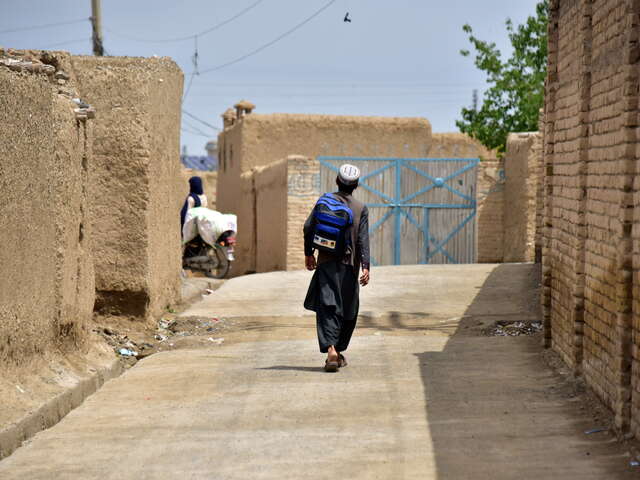
The IRC, through its sustained partnership with the European Union (EU), has been operating in Pakistan since 1980. Since then the IRC has expanded its reach to all provinces, providing emergency relief, education, job training, and many more essential services to vulnerable communities.
Under the “Integrated Humanitarian Assistance for Vulnerable Afghan Refugees and Emergency Affected Population (I-HAVE) in Balochistan and Sindh” project, the IRC has established an Accelerated Learning Program Center (ALP) near Naiko’s home. The centre provides free bridging programs for refugee students to attain basic skill-focused learning and education so they can be supported before they transition into the formal education system. Enrolled students are provided with textbooks, notebooks, and other stationery items. Our local out-reach staff got to know about Naiko from community members and reached out to his father in order to convince him to allow his son to attend the program at the centre.
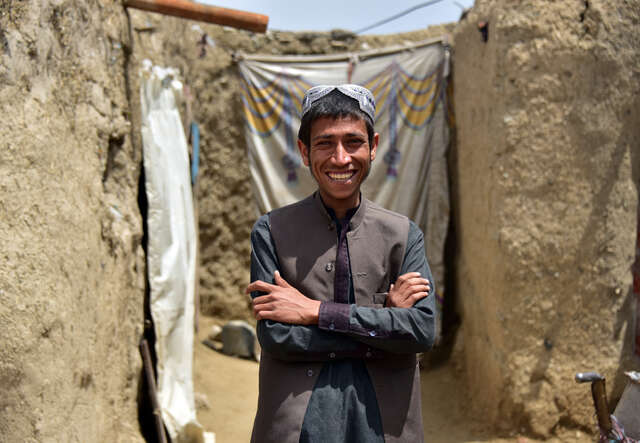
Initially Naiko’s father, Muhammad Sadiq, was hesitant to enroll Naiko in the learning program because of its timing conflicts with Naiko’s working hours. However, after mobilization efforts by the team, Sadiq left the decision to Naiko himself. He explains his story:
“I was reached out by our community members, along with team members of IRC. The IRC staff explained the ALP centre to me and how it would provide me a second chance of acquiring education. I used to bring Afghani newspapers to Pakistan a few years back and always wondered how amazing it would be to be able to read the newspapers and I always had a wish to learn how to read and that’s why the offer of joining the centre intrigued me so I agreed.”
At the ALP centre, Naiko successfully completed his non-formal education curricula. He was then provided with the completion certificate that then enabled him to enroll in the government school. “With the support of the IRC staff,” says Naiko, “I submitted the relevant documents to a nearby school and now I am a student of a formal middle grade government school.”
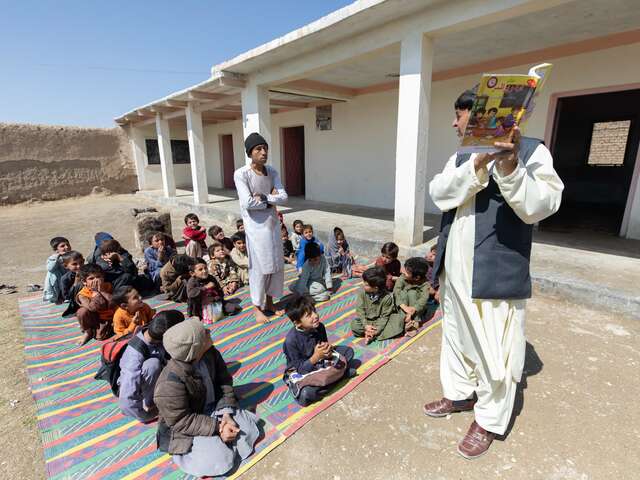
Naiko is now able to dedicate some of his evening time to reading newspapers. He goes on with his story, “The Accelerated Learning Program centre helped me in learning to read and write in Urdu and now, at the government school, I am learning to read and write in English as well. I have left smuggling and I am also learning the cobbler skills from my father. The IRC helped me in making my dream come true.” He can read road signs and names of streets as he walks to school, which encourages him in his educational journey and his hope of acquiring a job one day.
“I will continue to study and one day I will make my father proud.”
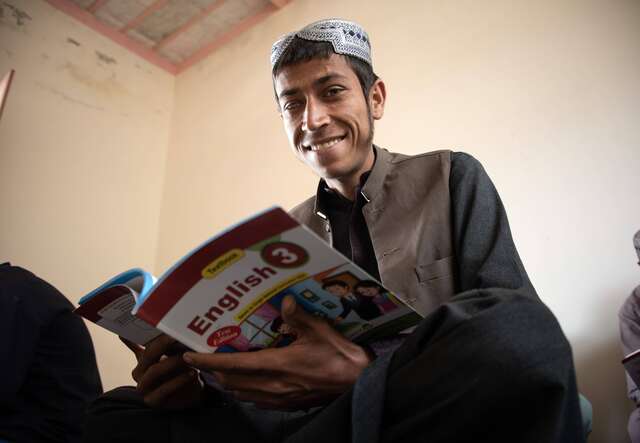
The International Rescue Committee partners with the European Union to provide life-saving support to people caught in conflict and disasters around the world. Our work funded by the EU enables people to survive, recover and rebuild their lives.

